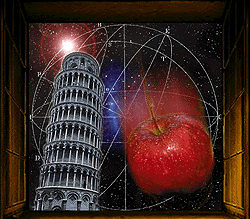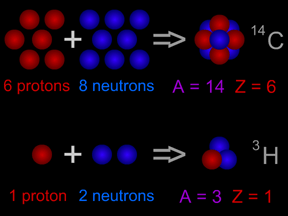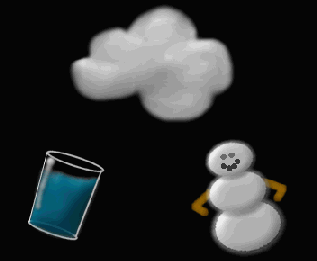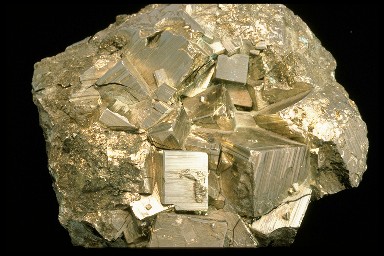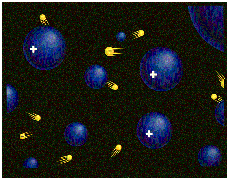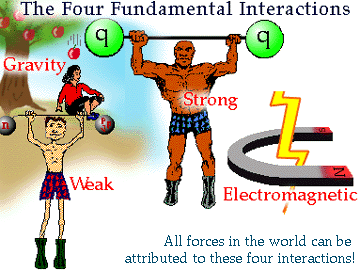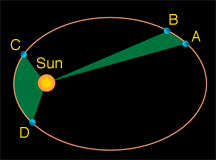Fundamental Physics
Physics is the study of basic properties, materials, and forces in our Universe. Our new physics section will start off with some background material about space, time, and matter. It will also include sections on mechanics, electricity and magnetism, thermal physics, atomic physics and particle physics, and tools for math and science (vectors, coordinate systems, units of measurement, etc.). The new physics section will also have links to many data sources relevant to Earth and space science. The links below provide access to some of the physics-related materials currently on the site. They are organized roughly into the categories we will use in the forthcoming physics section. |
Starting Points for Science
- Space - Distance - Astronomical Unit (AU), Angstrom, Wavelength
- Time - Year, The Seasons
- Matter
- What is Mass?, Atomic Mass
- States of Matter
Mechanics
- Gravity
- The Four Fundamental Forces
- Orbital Mechanics
- Kepler's Laws of Planetary Motion - 1st Law, 2nd Law, 3rd Law
- Elliptical Orbits - Eccentricity, Perihelion & Aphelion
- Interactive animation showing orbit variables
- Fluid Mechanics
Electricity and Magnetism
- Electricity
- Magnetism
- The Magnetic Field
- Magnetism
- The Force of Magnetism
- The Invisible World of Magnetic Fields
- Disk Magnet and Compass interactive (Flash)
- Bar Magnet and Compass interactive (Flash)
- Material which is magnetic
- Generating a Magnetic Field
- Basic Facts About the Effects of Magnetic Fields on Charged Particles
- Basic Facts About Spiral Motion
- Basic Facts About Bounce Motion
- The Facts About Drift Motion
- Electromagnetic Radiation
Thermal Physics
- No entries here yet. The new physics section will include topics like heat, temperature, the laws of thermodynamics, conduction & convection, etc.
Atomic Physics and Particle Physics
- A Model of the Atom
- Elementary Particles
- Fundamental Forces
- Fusion Reactions
- Elements (Chemical Elements), The Periodic Table of the Elements
- Radiation
- What's a molecule?
Tools for Math and Science
- No entries here yet. The new physics section will include topics like vectors, coordinate systems, units of measurement, etc.


